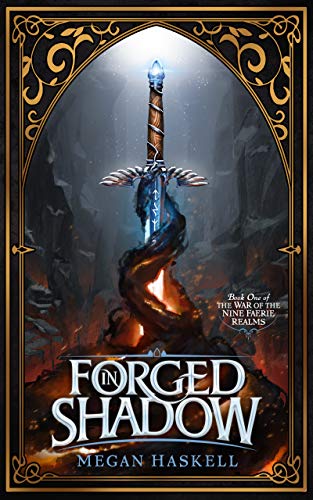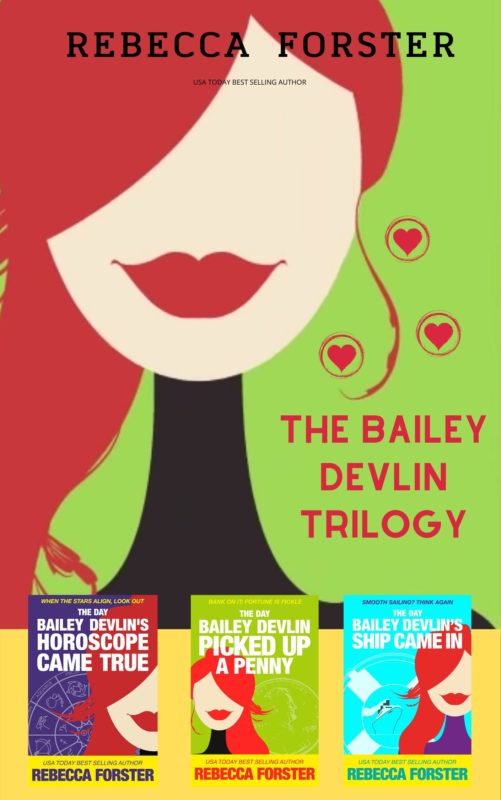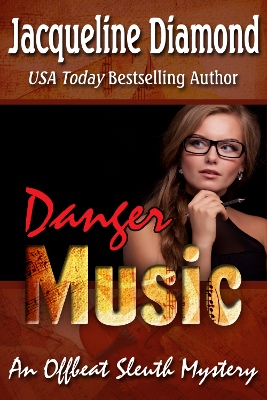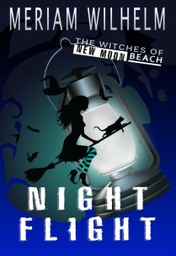The All-Year’s Resolution
December 28, 2009 by A Slice of Orange in category Archives tagged as writers goalsEvery January 1, people make a New Year’s resolution. They’re going to lose weight or quit smoking or finish that book. New gym memberships soar at the beginning of the year, as do registrations for weight loss programs and courses to walk away from those cigarettes for good. But there is no such animal for finishing a book that stretches over the long term.
I should mention that there are some tools out there for completing a book in a short amount of time, such as NANOWRIMO (http://www.nanowrimo.org), which is National Novel Writing Month. It occurs every November and encourages writers to complete their book over the course of that month. There is also Book In A Week by author April Kihlstrom (http://www.sff.net/people/april.kihlstrom/), which teaches a method of planning out a book over the course of four or five weeks and then actually writing the first draft in a week’s time. (I’m considering using this method myself for my February deadline.) These are excellent programs, which can encourage a writer to put themselves into the chair and make writing a priority, even if just for a short period of time.
But what about the rest of the year?
Very often, more than half the people who sign up for those gym memberships and weight loss plans and kick-the-smoking courses will drop out before Valentine’s Day, even if the change still needs to be made. Everyone knows their list of “shoulds.†I should lose weight, I should get more exercise, I should quit smoking.
I should work on my book.
The truth of the matter is that all of these changes—weight loss, exercise, quitting smoking, finishing that book—can only happen when you’re ready for it to happen. It requires dedication and a desire to want that change more than anything. To want it so much that you are willing to throw away that last opened pack of cigarettes or walk away from those home-made chocolate chip cookies or get on that treadmill.
That you are willing to do things like get up an hour earlier or miss your favorite TV program to make time for your writing. That you are willing to join a critique group and put your writing out there for evaluation, or drive over an hour to your writers’ meeting.
If you want something badly enough, you know you will do what it takes to get it. How many of us have stood in line for an hour to get on a ride at an amusement park or for tickets to a movie or concert we really wanted to see? How many of us have braved the airport or the highways during the holidays, dealing with airline delays and bad weather and congested traffic because we wanted to be with loved ones on that special day?
Why not put your writing at the top of your list of things you will make a priority from now on?
It’s not such a lofty goal. The average mass market paperback is about 365 pages long. That means if you write one page a day for one year, at the end of that year you will have a book.
That doesn’t sound like much, does it? The average word count for one page of a manuscript is 250 words. You probably write emails longer than that. But if you manage one page a day for a year, you will have a completed first draft of a book before the ball drops in Times Square the following year.
Now it’s hard to make long term change without accountability. Get your writer friends and your critique partners involved. All of you can set goals and check in with each other. Get together after the writers’ meeting or start a Facebook group or, for those of you on Twitter, follow trending topic #writegoal, where you can post your writing goals for the day and then later post again when you have completed that goal. (I find this very useful for keeping up with my own deadlines.)
Forget the New Year’s resolution. Let’s go for the All-Year’s resolution and keep that dedication going long after the confetti has been cleaned up and the champagne bottles have been recycled.
The power is in your hands to make it happen.
1 0 Read moreA Fantasy Life by Janet Quinn Cornelow
December 28, 2009 by A Slice of Orange in category Archives
Happy New Year. I can’t believe that another year is nearly over.
It is that time of year to look back at what you accomplished and look forward to what goals you want to set for the next year. This kind of planning can be done while you are snuggled on the couch recovering from Christmas, which is always so much work.
This week I am putting the finishing touches on Sam’s story. Yeah! I thought I would never finish this book, but I only have to put in a few corrections and off he goes.
That means I have to start something new with the New Year. I want to finish my next set of Augeas stories which I started awhile back. The big project, however, is an alternative universe story. The hero is a
I hope everyone had a great holiday and a wonderful New Year.
Thought for the day
December 24, 2009 by Isabel Swift in category From Isabel Swift tagged as gifts, miraclesHappy Holidays!
I wanted to share a quote from Marianne Williamson’s A RETURN TO LOVE, Reflections on the Principles of a Course in Miracles. She had a lovely and profoundly simple point that gave me a new insight into what a miracle was:
“A miracle is just a shift in perception.”
The more I thought about that, the more true I realized that’s exactly what a miracle was. We can use other words: Belief. Faith. But it really is just that small; just that big. A shift in perception.
How do we shift that perception? How do we move from believing something is impossible to believing it is possible?
Sometimes it entails finding a new path. Or gaining greater strength in an area of weakness. Maybe it’s just having someone else truly believe in us. And with that realization, we need to acknowledge and remember that we have the power to perform miracles in others. It’s a tremendous gift.
Give it freely.
1 0 Read moreAdvice to Myself as a Newbie Author: Jennifer Lyon
December 22, 2009 by A Slice of Orange in category Advice to Myself as a Newbie Author by Shauna Roberts tagged as Advice to Myself as a Newbie Author, Jennifer Lyonby Shauna Roberts
http://www.ShaunaRoberts.com
http://ShaunaRoberts.blogspot.com
Today’s Guest: Jennifer Lyon
Jennifer Lyon always wanted to be a witch. When her witch powers didn’t materialize, she turned to creating magic in her books. Soul Magic (Ballantine Books) debuted in October, the second in an enchanting, passionate supernatural series. Jen also has a super secret alter ego known as Jennifer Apodaca, the author of the award-winning Samantha Shaw Mystery Series.
If you could travel back in time to before you were first published, what advice would you give yourself?
 Once when I was a teenager and complaining about something or other, my mother stopped what she was doing and said, “Whoever told you life was fair? Quit whining and work harder.”
Once when I was a teenager and complaining about something or other, my mother stopped what she was doing and said, “Whoever told you life was fair? Quit whining and work harder.”
Boy, I had no idea back then how much that advice would end up shaping my career. I’ve had my share of setbacks, some which were my mistakes and others that were beyond my control. But each time, I heard my mother’s voice say, ‘Quit whining; work harder.’ And each time, working harder paid off–and sometimes not in the way I expected.
That’s my mom’s advice. Now here’s a few of the things I’ve learned so far, things that I wish I’d known or fully grasped before I published.
1. Write faster and learn to juggle. Everyone says this, but I have to stress it. Like it or not, it takes at least two books a year to really build a strong fan base. And once published, you must juggle other things along with the writing, such as revisions, line edits, copy edits, galleys, and promotion.
2. Build a team. This has two parts. Part one is your professional team, which consists of your editor, agent, research contacts, web designers, or designers for bookmarks, whatever you need. I try to keep a Rolodex of people I can rely on in a professional capacity. Part two is friends and critique partners. I have many, but there are about five core people I critique with and go to for advice or just to talk to. I can trust these people implicitly.
3. Be flexible. Few careers in publishing move in a straight line. There will be changes; editors leave, agents retire, lines close, the economy tanks, a genre suddenly stops selling–it happens. Every day. It’s taken me a while to learn to roll with these things. Canceling a series or rejecting a project is just part of the business. Stay flexible and move on.
 4. Be professional, reliable, and self-confident. The first two I did from the start; the self-confident part has been harder. I have learned to project a bit more self-confidence in dealing with editors and agents. It makes everyone feel more secure if the author is reasonably sure she can do something.
4. Be professional, reliable, and self-confident. The first two I did from the start; the self-confident part has been harder. I have learned to project a bit more self-confidence in dealing with editors and agents. It makes everyone feel more secure if the author is reasonably sure she can do something.
Lack of self-confidence caused me to turn down an anthology I probably should have accepted. I wasn’t sure I could make the deadlines, which is really valid. However, it was with a New York Times bestseller, and that exposure may have been worth the risk.
5. Make decisions based on facts and research, not emotion. In the changing face of publishing, it’s a little harder to grasp all the facts. But the old adage still applies: ‘If it’s too good to be true, it’s probably false.’ Do your research, really listen to people with experience, and try to base your decision on facts, not emotion. Before I sold to a traditional publisher, I went with an electronic publisher that was less than reputable because I just wanted to believe and ignored some red flags.
6. Don’t give up. Ever. If one thing isn’t working, then you need to step back and evaluate the project. What’s not working? The idea or the execution? If it’s the idea, consider putting it away and working on something else. If it’s the execution, then roll up your sleeves and get to work. Abandoning a project that isn’t working is not giving up. It’s simply a risk that didn’t work. Take what you learned and then turn the next project into a success.
So that’s it. And for the record, I’ve done okay with the ‘work harder’ portion of my mom’s advice. But I still have a tendency to whine.
Thanks so much to Shauna Roberts for having me as a guest today!
You can learn more about Jennifer and Soul Magic at her Website and blog at http://www.jenniferlyonbooks.com/. You can find Soul Magic at your local bookstore as well as online from Amazon.com and other online stores.
0 0 Read moree-maginings: e-Publishing Update by Lyndi Lamont
December 16, 2009 by A Slice of Orange in category Archives tagged as digital rights, e-books, e-maginings, nookA couple of things have happened in the e-book world this month. For one, the new Barnes and Nobel nook reader made its debut to a less than stellar review in the New York Times. Reviewer David Pogue states that “Every one of the Nook’s vaunted distinctions comes fraught with buzz kill footnotes.” He blames B&N’s impatience to bring the nook to the public prematurely. He found the device slow and balky and concludes: “To use the technical term, it’s slower than an anesthetized slug in winter.”
However, it might be a good gift for the hacker in your life. Wired.com reports that the nook has already been “torn open, hacked and rooted”. I’m not a hacker, so I don’t understand all the details, but apparently doing this lets you hook the nook, with its Google Android operating system and a free cellular connection to the internet directly to your computer. I’m sure B&N didn’t foresee this development.
In the area of digital rights, Random House is playing hardball by insisting that all their contracts, no matter how old, inherently include digital rights, no matter how vaguely worded (or perhaps nonexistent) the contract language may have been. They tried this some years ago with Rosetta Books and lost twice in court. Yesterday the Authors Guild protested their action. Click here to read the statement.
I’m being featured this month (as Lyndi Lamont) at the Rainbow Studio of TRS. Stop by and read the interview if you have a moment.
Happy Holidays to all.
Linda / Lyndi
0 0 Read moreAffiliate Links
A Slice of Orange is an affiliate with some of the booksellers listed on this website, including Barnes & Nobel, Books A Million, iBooks, Kobo, and Smashwords. This means A Slice of Orange may earn a small advertising fee from sales made through the links used on this website. There are reminders of these affiliate links on the pages for individual books.
Search A Slice of Orange
Find a Column
Archives
Featured Books
FORGED IN SHADOW
In the chaos of war, not all heroes shine. Some must rise from shadows to claim the light.
More info →THE BAILEY DEVLIN TRILOGY: BOOK 1-3 (The Bailey Devlin Series)
Bailey Devlin believes in fate. . .and luck. . .and fortune telling.
More info →DANGER MUSIC
Her quirky assignment: solve a famous cold-case mystery for a magazine article. Then the killer reawakens.
More info →NUMB
Will greed prevail, landing the Vitality Gem in the hands of an unpure soul or will Johnny Tanzer stand in his way with the wrath of the Gods?
More info →NIGHT FLIGHT
Olivia Merriman’s witchy wiring has all gone haywire and if she doesn’t get it under control soon she’s going to lose her boyfriend, her magic and a whole lot more!
More info →Newsletter
Contributing Authors
Search A Slice of Orange
Find a Column
Archives
Authors in the Bookstore
- A. E. Decker
- A. J. Scudiere
- A.J. Sidransky
- Abby Collette
- Alanna Lucus
- Albert Marrin
- Alice Duncan
- Alina K. Field
- Alison Green Myers
- Andi Lawrencovna
- Andrew C Raiford
- Angela Pryce
- Aviva Vaughn
- Barbara Ankrum
- Bethlehem Writers Group, LLC
- Carol L. Wright
- Celeste Barclay
- Christina Alexandra
- Christopher D. Ochs
- Claire Davon
- Claire Naden
- Courtnee Turner Hoyle
- Courtney Annicchiarico
- D. Lieber
- Daniel V. Meier Jr.
- Debra Dixon
- Debra H. Goldstein
- Debra Holland
- Dee Ann Palmer
- Denise M. Colby
- Diane Benefiel
- Diane Sismour
- Dianna Sinovic
- DT Krippene
- E.B. Dawson
- Emilie Dallaire
- Emily Brightwell
- Emily PW Murphy
- Fae Rowen
- Faith L. Justice
- Frances Amati
- Geralyn Corcillo
- Glynnis Campbell
- Greg Jolley
- H. O. Charles
- Jaclyn Roché
- Jacqueline Diamond
- Janet Lynn and Will Zeilinger
- Jaya Mehta
- Jeannine Atkins
- Jeff Baird
- Jenna Barwin
- Jenne Kern
- Jennifer D. Bokal
- Jennifer Lyon
- Jerome W. McFadden
- Jill Piscitello
- Jina Bacarr
- Jo A. Hiestand
- Jodi Bogert
- Jolina Petersheim
- Jonathan Maberry
- Joy Allyson
- Judy Duarte
- Justin Murphy
- Justine Davis
- Kat Martin
- Kidd Wadsworth
- Kitty Bucholtz
- Kristy Tate
- Larry Deibert
- Larry Hamilton
- Laura Drake
- Laurie Stevens
- Leslie Knowles
- Li-Ying Lundquist
- Linda Carroll-Bradd
- Linda Lappin
- Linda McLaughlin
- Linda O. Johnston
- Lisa Preston
- Lolo Paige
- Loran Holt
- Lynette M. Burrows
- Lyssa Kay Adams
- Madeline Ash
- Margarita Engle
- Marguerite Quantaine
- Marianne H. Donley
- Mary Castillo
- Maureen Klovers
- Megan Haskell
- Melanie Waterbury
- Melisa Rivero
- Melissa Chambers
- Melodie Winawer
- Meriam Wilhelm
- Mikel J. Wilson
- Mindy Neff
- Monica McCabe
- Nancy Brashear
- Neetu Malik
- Nikki Prince
- Once Upon Anthologies
- Paula Gail Benson
- Penny Reid
- Peter Barbour
- Priscilla Oliveras
- R. H. Kohno
- Rachel Hailey
- Ralph Hieb
- Ramcy Diek
- Ransom Stephens
- Rebecca Forster
- Renae Wrich
- Roxy Matthews
- Ryder Hunte Clancy
- Sally Paradysz
- Sheila Colón-Bagley
- Simone de Muñoz
- Sophie Barnes
- Susan Kaye Quinn
- Susan Lynn Meyer
- Susan Squires
- T. D. Fox
- Tara C. Allred
- Tara Lain
- Tari Lynn Jewett
- Terri Osburn
- Tracy Reed
- Vera Jane Cook
- Vicki Crum
- Writing Something Romantic
Affiliate Links
A Slice of Orange is an affiliate with some of the booksellers listed on this website, including Barnes & Nobel, Books A Million, iBooks, Kobo, and Smashwords. This means A Slice of Orange may earn a small advertising fee from sales made through the links used on this website. There are reminders of these affiliate links on the pages for individual books.









































